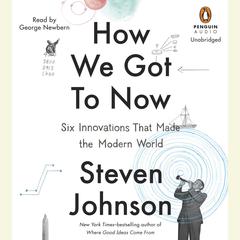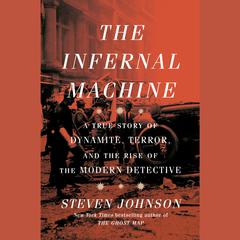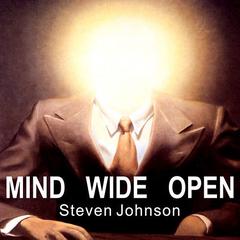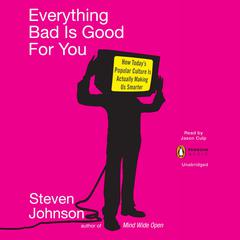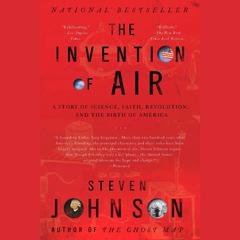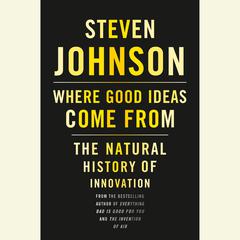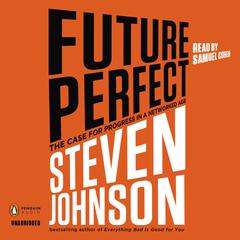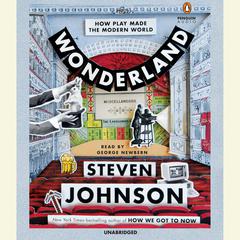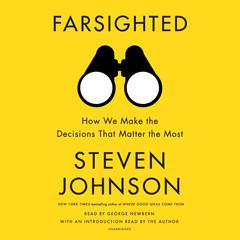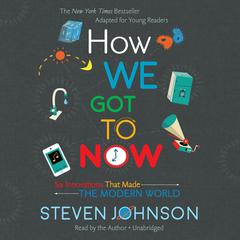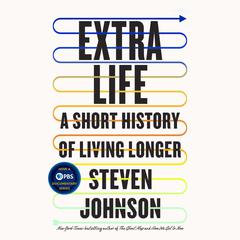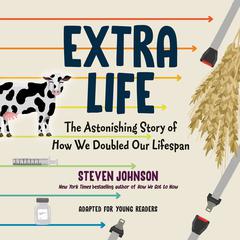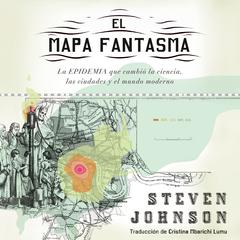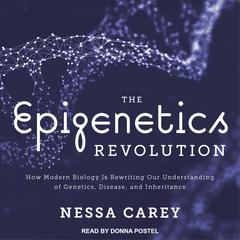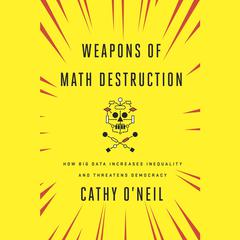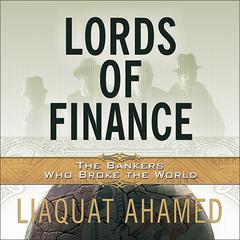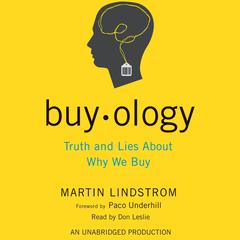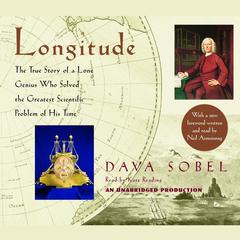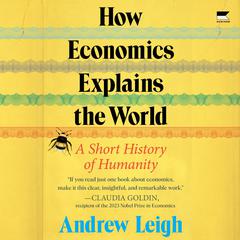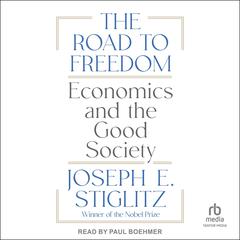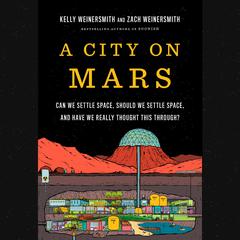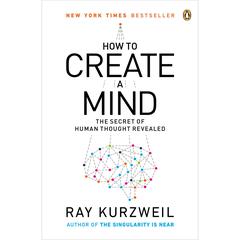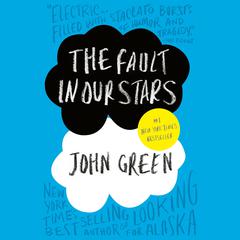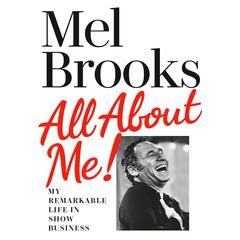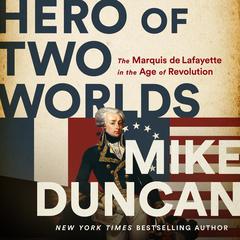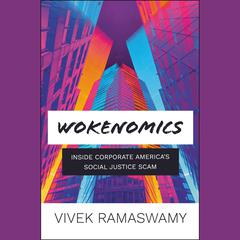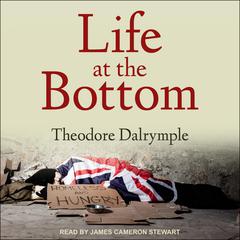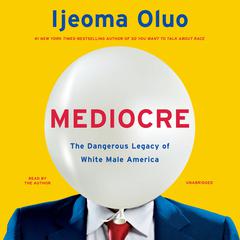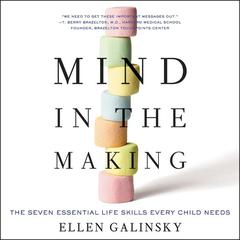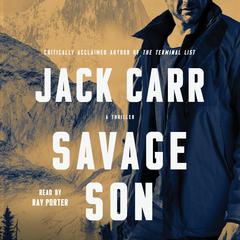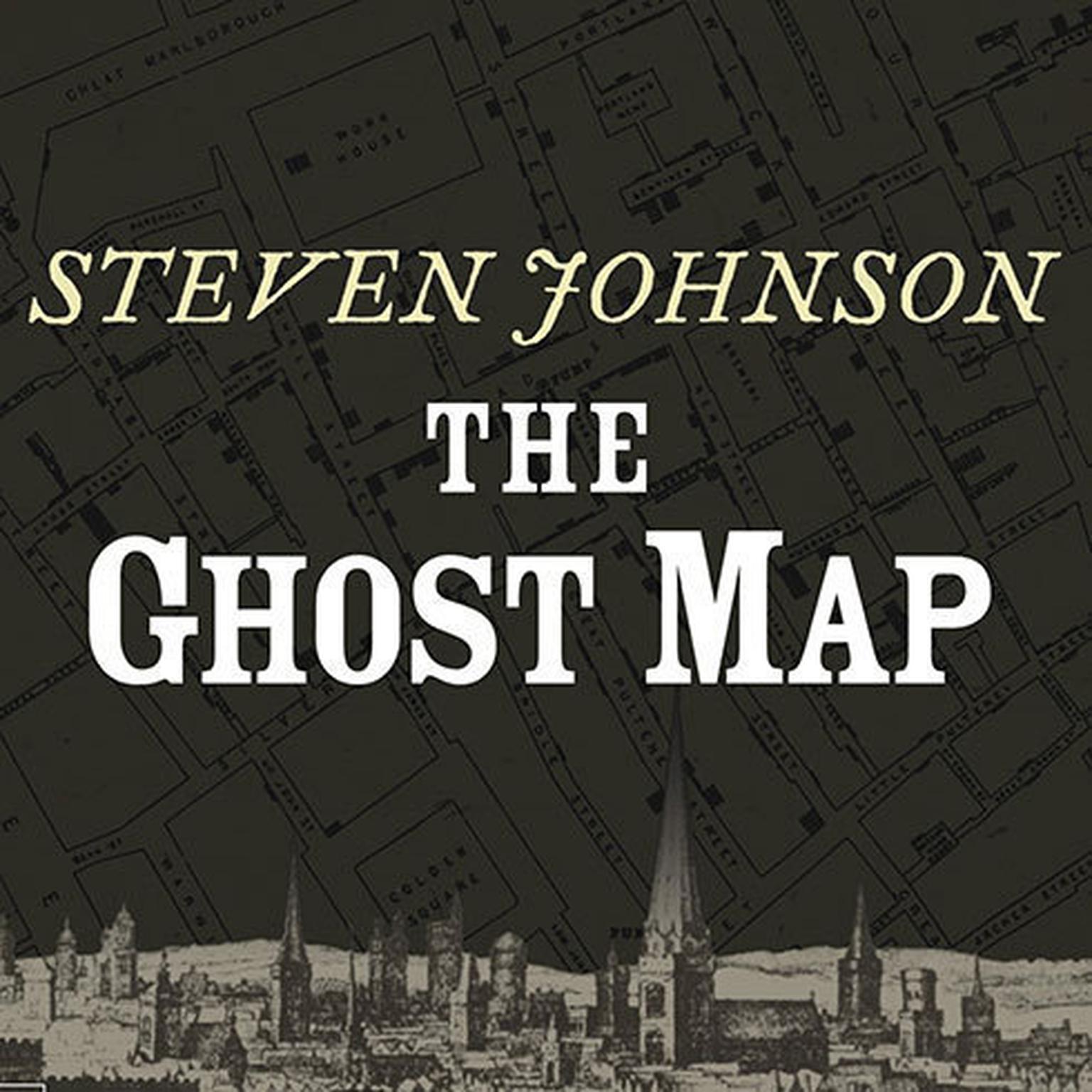 Play Audiobook Sample
Play Audiobook Sample
The Ghost Map: The Story of London’s Most Terrifying Epidemic—and How It Changed Science, Cities, and the Modern World Audiobook
 Play Audiobook Sample
Play Audiobook Sample
Quick Stats About this Audiobook
Total Audiobook Chapters:
Longest Chapter Length:
Shortest Chapter Length:
Average Chapter Length:
Audiobooks by this Author:
Publisher Description
A thrilling historical account of the worst cholera outbreak in Victorian London-and a brilliant exploration of how Dr. John Snow's solution revolutionized the way we think about disease, cities, science, and the modern world.
From the dynamic thinker routinely compared to Malcolm Gladwell, E. O. Wilson, and James Gleick, The Ghost Map is a riveting page-turner with a real-life historical hero that brilliantly illuminates the intertwined histories of the spread of viruses, rise of cities, and the nature of scientific inquiry. These are topics that have long obsessed Steven Johnson, and The Ghost Map is a true triumph of the kind of multidisciplinary thinking for which he's become famous-a book that, like the work of Jared Diamond, presents both vivid history and a powerful and provocative explanation of what it means for the world we live in.
The Ghost Map takes place in the summer of 1854. A devastating cholera outbreak seizes London just as it is emerging as a modern city: more than 2 million people packed into a ten-mile circumference, a hub of travel and commerce, teeming with people from all over the world, continually pushing the limits of infrastructure that's outdated as soon as it's updated. Dr. John Snow-whose ideas about contagion had been dismissed by the scientific community-is spurred to intense action when the people in his neighborhood begin dying. With enthralling suspense, Johnson chronicles Snow's day-by-day efforts, as he risks his own life to prove how the epidemic is being spread.
When he creates the map that traces the pattern of outbreak back to its source, Dr. Snow didn't just solve the most pressing medical riddle of his time. He ultimately established a precedent for the way modern city-dwellers, city planners, physicians, and public officials think about the spread of disease and the development of the modern urban environment.
The Ghost Map is an endlessly compelling and utterly gripping account of that London summer of 1854, from the microbial level to the macrourban-theory level-including, most important, the human level.
Download and start listening now!
"Read this for book club. I don't usually choose nonfiction, but the joy of bookclub is getting to read outside my comfort zone. This was extremely well-written, and kept me engaged for the whole read. Every time I'd start to have a question or argue in my head with the author, I found out as I read farther that he had led me by the nose into my argument thread on purpose so that he could answer just that question. The first chapter on the state London sanitation in the 1850s was fascinatingly disgusting."
— Sara (4 out of 5 stars)
Quotes
-
“Marvelous.”
— Wall Street Journal -
Compelling...an illuminating and satisfying read.
— Publishers Weekly Starred Review -
“The Ghost Map charts the London cholera epidemic of 1854, from which Johnson extracts a saga of human ingenuity and true communal effort.”
— Los Angeles Times Book Review -
“By turns a medical thriller, detective story, and paean to city life, Johnson’s account of the outbreak and its modern implications is a true page-turner.”
— Washington Post
The Ghost Map Listener Reviews
-
" This drags a bit in the middle, but overall a very fascinating book! "
— Mary, 2/14/2014 -
" Great book, along the lines of THE BLUE DEATH, which Johnson unfortunately doesn't seem to have read. Also a nice fit with THE BIG NECESSITY, since cholera comes from sewage-contaminated water. Not for the weak of stomach or those who like to read while they eat. Ha ha. "
— Christina, 2/9/2014 -
" I can't believe how intrigued I was by this book. Especially, the parts where the author breaks down the system of living during this time. Why? I am not a civil engineer. I do not enjoy reading about poo. This book was incredibally well written to intrigue a mostly fiction reader. "
— Lana, 2/1/2014 -
" Beautifully written, well-researched, and has something to say. Thought-provoking. Highly recommended. Even better than The Invention of Air by the same author, but I recommend that one, too. "
— Gayla, 1/31/2014 -
" Interesting depiction of just how filthy London was. "
— Booknerd, 1/25/2014 -
" The first 3/4 are good, but it becomes tiresome, preachy and redundant in the end. Reads like an over-stuffed Atlantic Monthly piece. "
— Niki, 1/22/2014 -
" Intriguing. Well researched and reasoned, and very readable style. "
— Voracious, 1/19/2014 -
" A fascinating book about the the cholera epidemic in London. This one doctor's crusade led to the idea of "public health". "
— Kaffrun, 12/18/2013 -
" This was a fascinating book, and it was incredibly informative. It took me longer than expected to read though. It was to be my lunch break read, but reading about cholera on your lunch break is not recommended. "
— Kim, 11/8/2013 -
" Interesting look at the famous Dr. Snow saves town from Cholera by removing a pump handle story. There's lots more to it. If you liked the Poisoner's Handbook, you should like this as well (though the last two chapters are kinda wandery and over broad). "
— Megan, 9/25/2013 -
" It was a slow read. It wasn't a hard read just slow. "
— Melanie, 8/31/2013 -
" I didn't finish it; I was only able to read about 1/4 of it but I liked it. I was surprised I like it. The science of cholera was interesting, as was the culture of Victorian England. The book made me appreciate modern medicine a lot more, too. "
— Jolie, 7/29/2013 -
" Although I had to read this for my Epidemiology class, it was actually a fantastic story. "
— Naomi, 7/27/2013 -
" I would never have selected this book on my own, but I loved it. At the very end, when Johnson applies his research to the modern world, I wanted to cheer. That is what good history is all about, showing how everything is connected. Well done. "
— Barb, 3/22/2013 -
" One of the best books I have read recently. It provides a very detailed and clear narrative of the process of solving the mystery of how cholera was spread. I loved the level of detail, how the author laid out how each piece of the puzzle was discovered and put together to form the solution. "
— Liz, 3/18/2013 -
" Exactly what history shoudl read like- interesting story, interdisciplinary look, and an openminded survey of elements. Plus it reads like a really good detective story where the reader is in the know the whole time and waiting for the principle characters to figure it all out by the end. "
— Annette, 1/8/2013 -
" I loved the story and how it tells the history of public health. I attempted to read another by the same author and it didn't catch my attention however. "
— Melissa, 11/5/2012 -
" A paradigm shift in the new (in 1850) science of epidemiology. "
— Conchetta, 2/29/2012 -
" Way too much detailed information about the cholera epidemic in London than I would want... but a very informative book. I am not certain how well he was able to link the ideas to the current situation in the world. "
— Alberta, 8/5/2011 -
" Fantastic historical study of a deadly cholera outbreak in London during the Victorian era, focused around the actions of two men with very different approaches, whose combined efforts would help overcome the disease, and reshape how modern cities are designed. "
— Stacy, 7/27/2011 -
" This was scary to read in light of the recent scares of pandemic's and my Nursing background gave me even greater insight into how this will help determine outcomes. I was appalled at the living conditions of the day. dreadful. "
— Cindy, 5/25/2011 -
" <br/>Well-written and well-paced history of London's cholera outbreak of 1854. There was some repetitive analysis, but it was an interesting story and certainly worth a read. "
— Sarah, 5/18/2011 -
" I read this book about epidemic disease and urban sanitation, in part, on the most squalid SEPTA train I've ever been on. It really gave me some food for thought, I guess. "
— Chris, 5/10/2011 -
" Really good! The sociologist nerd in me loved the qualitative and quantitative methodology to figure out what caused the outbreak. Plus, the writing was super entertaining--I never thought reading about cholera could be so engrossing... "
— Emily, 5/4/2011 -
" totally fascinating look into history; fantastic storytelling "
— Hania, 4/17/2011 -
" Fascinating story of how man can conquer disease! "
— Jimmie, 4/15/2011
About Steven Johnson
Steven Johnson is the author of twelve books, including How We Got to Now, a New York Times bestseller and the basis for the Emmy–winning PBS/BBC series How We Got to Now. He is also the host of the podcast American Innovations.
About Alan Sklar
Alan Sklar, a graduate of Dartmouth, has excelled in his career as a freelance voice actor. Named a Best Voice of 2009 by AudioFile magazine, his work has earned him several Earphones Awards, a Booklist Editors’ Choice Award (twice), a Publishers Weekly Listen-Up Award, and Audiobook of the Year by ForeWord magazine. He has also narrated thousands of corporate videos for clients such as NASA, Sikorsky Aircraft, IBM, Dannon, Pfizer, AT&T, and SONY.




